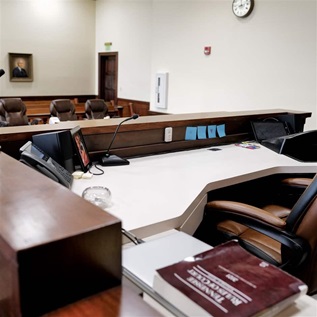Generations United Receives $400,000 Award from The Pew Charitable Trusts to Help Foster Children Live with Safe, Permanent Families
Generations United (GU) announced today the receipt of $400,000 from The Pew Charitable Trusts to fund the second year of “Uniting Generations to Support Children in Foster Care,” a national initiative aimed at raising awareness about the need to help foster children live in safe, permanent families through subsidized guardianships with grandparents and relatives.
The Pew Commission on Children in Foster Care called for major reforms of the foster care financing and court systems, including a specific recommendation to allow states to use federal foster care funds to subsidize guardianships for children for whom adoption and reunification with their parents are not an option. Without legal guardianship, performing even the simplest of tasks can become a bureaucratic ordeal. For example, for activities as mundane as attending a sleep over at a friend's house, crossing state lines, or providing permission for school pictures, a relative caregiver who is a foster parent must acquire prior approval by caseworkers or judges.
“Subsidized guardianship is a critical support for relative caregivers and allows children to stay connected to their families,” said Donna Butts, executive director of Generations United. “By changing the federal financing system to provide more support for relatives caring for innocent children in foster care, we can better ensure that children will live in safe, permanent homes instead of languishing in the system.”
Generations United will educate policymakers and relative caregivers about how the Pew Commission recommendations will benefit children in foster care. Specifically GU will build public support for these children by working with state and national coalitions to conduct media events, produce educational materials, and encourage federal support for subsidized guardianship.
“Moving children from foster care to homes with loving grandparents and other relatives when reunification or adoption is not an option is common sense. We look forward to partnering with Generations United in its important work to achieve this goal,” said Jim O'Hara, director of the health and human services program at The Pew Charitable Trusts.
Generations United is the only national membership organization focused solely on improving the lives of children, youth, and older people through intergenerational strategies, programs, and public policies. GU represents more than 100 national, state, and local organizations and individuals representing more than 70 million Americans. Since 1986, GU has served as a resource for educating policymakers and the public about the economic, social, and personal imperatives of intergenerational cooperation. GU acts as a catalyst for stimulating collaboration between aging, children, and youth organizations providing a forum to explore areas of common ground while celebrating the richness of each generation.











